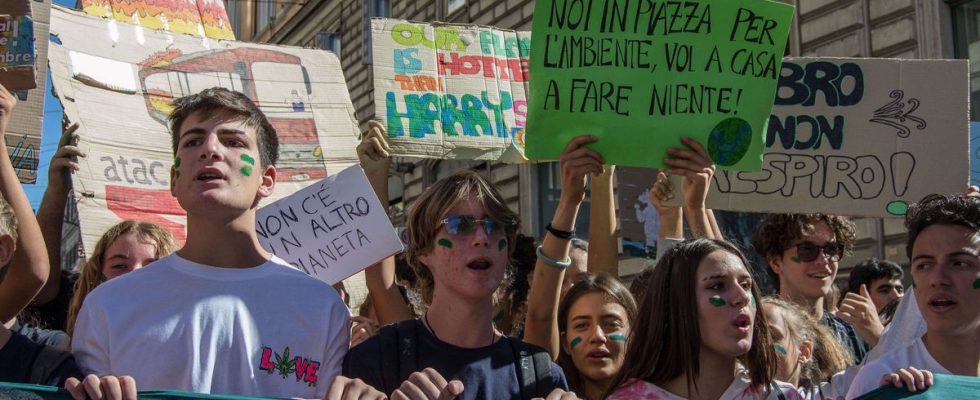Young people are the future, and the future could get darker. A study of the Soros foundation published Monday highlights a certain detachment among young people around the world for democracy and an attraction towards military, even dictatorial, regimes. Enough to give Solon, considered the father of democracy, a cold sweat.
But do young people really want to live under an authoritarian regime or are they expressing disappointment with the “least bad of all systems”, as Churchill said?
A phenomenon of “democratic deconsolidation”
If 71% of those over 56 years old believed that this regime is preferable to a dictatorship, only 57% of those aged 18-35 share this opinion, according to this study carried out on 36,000 people questioned in 30 countries. Worse still, 35% say they are in favor of a strong leader without parliament or elections and 42% ready to try a military system. “It’s not a surprise,” says Michel Wieviorka, sociologist, according to whom, in France for example, “the best “barrier” to the RN is the vote of the elderly.” In 2022, 18% of them voted for Marine Le Pen. But generally, there is a “less important attachment to representative democracy, young people vote less and are not as interested in politics”, also adds Camille Bedock, political science researcher at the CNRS. Indeed, during the second round of the last presidential election, 41% of 18-24 year olds did not vote.
More generally, this is a trend that has not only been observed in France, but more widely and for several years. “These results confirm several surveys already published; for some time we have been observing a phenomenon of democratic deconsolidation in the new generations,” explains Anne Muxel, research director at Cevipof (Sciences Po Political Research Center). Even if this observation is not always easy to explain, several factors come into play, notably a “democratic disenchantment”, she adds.
Broken promises
Today’s young people have grown up and become politicized in an era where crises are multiplying. Whether it is climate distress, economic collapse, technological boom, health crisis, terrorist threat or unregulated geopolitics which “reinforce each other to a degree never before achieved”, underlines the study of the foundation. Faced with this deluge of upheavals, “democracy does not respond to all the problems”, notes Michel Wieviorka, and in particular to their main concerns, namely the environment and the fight against corruption. “There is therefore a sort of disappointment with a very positive discourse on democracy,” he adds. The impression that this diet does nothing. Especially since the ideals promised by democracy, such as freedom of expression, respect for human rights, pluralism, representation of the people, imply a real requirement to be properly applied. They can be shaken by successive crises.
Furthermore, democracy is the cradle of these young people who have known nothing else for the most part, so it is less a desire to want to go under a North Korean regime than a desire for change that drives the youth. of the world. Try something new “to eat better, have a job, everything that democracy does not always bring us”, interprets Michel Wieviorka. This also reflects “the attractiveness of certain leaders or certain authoritarian populist formulas, which record more electoral results among young people”, pushes Anne Muxel. Because sovereign authority can also have a “reassuring” side in the face of the deluge of crises that the generation is encountering, adds the research director.
An aging diet
Added to this is a crisis of distrust in political and media institutions. Young people no longer feel represented by their elected officials. “Obviously, it’s dysfunctional,” says Anne Muxel. “So how can we get young people to trust democracy? », asks Michel Wieviorka. Perhaps by finding new forms of political life, by reinventing the regime towards a participatory democracy, finding a new formula, continuing to evolve without relying on a regime designed by the old world. “The political system needs to be rejuvenated, to be more in tune with what is expected of the future,” the sociologist further believes.
“If democracy is not renewed in its institutions, in its forms, there will be more and more disinterest,” warns Michel Wieviorka. And democracy is a fragile regime, constantly in danger, which is shaking today under the tremors of an explosive cocktail. “So if young people increasingly let other generations express their vote, their voice, in their place, they will feel more and more disowned and will turn their backs even more on democracy,” anticipates Camille Bedock. A vicious circle that risks ending badly.

